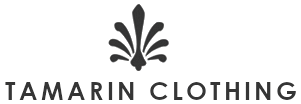Ethical Sourcing
At Tamarin Clothing we pride ourselves of the level of service and confidence that we can provide Buyers in achieving their sourcing objectives.
Although our aim is to assist Buyers in sourcing products at the most competitive prices, this is never achieved to the detriment of sound, ethical standards that we expect from all the factories that we work with.
All our factories have therefore been formally audited for social and ethical compliance. They are SEDEX registered and have also obtained a number of other certifications. Furthermore, our In-house Compliance Team regularly carries out Social and Ethical audits on our factories in India. All these facilities will also undergo further audits performed by accredited independent auditing firms. of the industry.






Sustainability
Our world is precious and we should do all we can to look after it.
The fashion industry is acknowledged to be one of the world’s biggest polluters.
This is the reason why we also supply sustainably sourced garments produced from BCI cotton, organic cotton or recycled cotton fabrics
In doing so, we feel that we are able to play our small part in reducing the negative environmental impact of the industry.
BCI Cotton
Farmers are supported to use water in an environmentally sustainable way. They are also encouraged to enhance biodiversity on the land under cultivation and adopt best practices for the growing, harvest, storage and transport of the cotton.
This broad based programme provides a diversified approach to producing cotton in a sustainable way.
Organic Cotton
The crops are not treated with pesticides and both the growing and the harvesting process are carried out using natural processes.
Recycled Cotton
The use of recycled cotton reduces the environmental pollution created by plastic bottles and fabric waste ending in landfills. It also reduces water usage as the cotton fabric does not require further dyeing.
